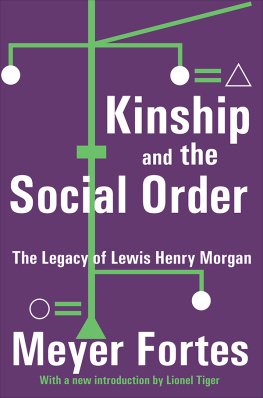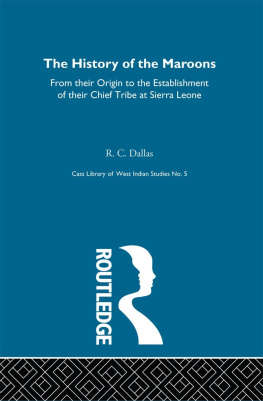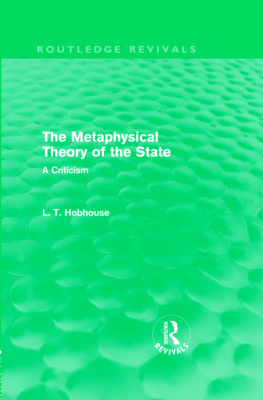LONDON SCHOOL OF ECONOMICS MONOGRAPHS ON SOCIAL ANTHROPOLOGY
Managing Editor: Charles Stafford
The Monographs on Social Anthropology were established in 1940 and aim to publish results of modern anthropological research of primary interest to specialists.
The continuation of the series was made possible by a grant in aid from the Wenner-Gren Foundation for Anthropological Research, and more recently by a further grant from the Governors of the London School of Economics and Political Science. Income from sales is returned to a revolving fund to assist further publications.
The Monographs are under the direction of an Editorial Board associated with the Department of Anthropology of the London School of Economics and Political Science.
First published 1968 by The Athlone Press
Republished 2004 by Berg Publishers
Published 2020 by Routledge
2 Park Square, Milton Park, Abingdon, Oxon OX14 4RN
605 Third Avenue, New York, NY 10017
Routledge is an imprint of the Taylor & Francis Group, an informa business
Copyright London School of Economics 2004
All rights reserved. No part of this book may be reprinted or reproduced or utilised in any form or by any electronic, mechanical, or other means, now known or hereafter invented, including photocopying and recording, or in any information storage or retrieval system, without permission in writing from the publishers.
Notice:
Product or corporate names may be trademarks or registered trademarks, and are used only for identification and explanation without intent to infringe.
ISBN13: 978-1-8597-3864-1 (hbk)
William Halse Rivers Rivers was born in 1864 and died in 1922. More than fifty years have passed since, when a Fellow of St. Johns College, Cambridge, he delivered these three lectures on kinship at the London School of Economics and Political Science.
Published in 1914 by Constable and Co Ltd, as No. 36 in the Series of Monographs by Writers connected with the School, the series, entitled Studies in Economic and Political Science, was edited by the Hon. W. Pember Reeves, Director of the School. (Malinowskis Argonauts of the Western Pacific, published in 1922, was No. 65 in this Series.) One index to the passage of time is seen in the fact that the original edition of Riverss three lectures was sold as a book of nearly one hundred pages, in a blue cloth cover with gilt lettering, for only 2/6d.
In conformity with modern spelling usage the title in this edition is referred to throughout as Kinship and Social Organization. The original had Organisation.
During this half century, in the many generations of British social anthropologists three categories may be distinguished with reference to this work. There are those, like Malinowski (who attended the Lectures), Radcliffe-Brown and Brenda Seligman, who learned directly from Rivers; there are those, like myself and some of my contemporary colleagues, who never knew Rivers but found his influence still fresh when we came to work in London in the nineteen twenties; and there are our students in turn, for many of the most recent of whom Rivers is almost a legend and even Malinowski only a name. Obviously, there has been a great advance in kinship studies since Riverss time. The ethnography based on kinship inquiry has been vastly widened. About the Trobrianders, the Tikopia, the Samoans and the various Nilotic, Pueblo and other peoples mentioned by Rivers, we now know so much as to make his tentative statements seem crude indeed. (Though for the Banks islands and Santa Cruz it is only very recently that we have had much more scholarly information than Rivers himself collected.)
Progress in kinship ethnography at the present time cannot, of course, be attributed solely or even largely to the influence of Rivers. But efficient collection of kinship data in the field has continued to use as a prime instrument some version of the genealogical method first specifically formulated and advocated by Rivers as a result of his own field research in the Torres Straits and among the Todas. This work is not without blemish. The studies of Emmeneau among the Todas revealed a type of structure which Rivers had not perceived. In his methodological paper Rivers asserts that no knowledge of the vernacular is needed to collect kinship information effectively by the use of genealogiesa claim which few modern anthropologists would be prepared to support. Moreover, apart from modern refinements of the method which have been introduced, genealogical inquiry needs to be supplemented by some form of sociological census in order to yield the best results. Again, while the technique is simple it is very time-consuming if systematically pursued, and raises difficulties of application on a sampling basis for large populations, as Herskovits has indicated. Nevertheless, it is recognized, as Herskovits himself has pointed out (1948, pp. 8991), that the genealogical method is essentially associated with the name of Rivers and if adequately used lays bare a broad range of information concerning the social structures and other institutions of the people being studied. It has seemed appropriate, then, to reprint a contribution of such historical interest to the field anthropologist.
But if kinship ethnography has expanded greatly since Riverss day, the climate of opinion, the way of thinking theoretically about kinship, has altered even more. Rivers held as a cardinal assumption in the lectures delivered at the London School of Economics that systems of kinship terminology give a valuable instrument for studying the history of social institutions, especially forms of marriage. This thesis is now outmoded except in some special features. It was already outmoded in fact at the time of its enunciation by Rivers. A. R. Radcliffe-Brown has told us how at that time he disagreed with Rivers and challenged his methodological bias towards conjectural history (1941, repub. 1952, pp. 501). B. Malinowski, before the lectures were published, had already issued a book which quietly ignored Riverss major preoccupation, though it criticized in the work of others the sacrifice of the understanding of actual facts to sterile speculation upon a hypothetical earlier state of things. Malinowski proclaimed there the position which he and practically all later social anthropologists were to take up, and which left much of Riverss analysis high and drythe first postulate of scientific study: the possibility of an adequate description of facts and their mutual dependences as they exist now in living, primitive societies (1913, pp. vii, ix).
Why then should it be thought worth while reissuing these London lectures? While the main stream of kinship theory has swung right away from Riverss position and is not likely ever to return, it is clear that the influence of Rivers on his contemporaries was profound and on his successors has been significant. Malinowski, in the work to which reference has been made, acknowledges his debt to Rivers for the constant aid and counsel generously given. Radcliffe-Brown, while registering his adverse criticism of Riverss method in the field of historical reconstruction, also records his esteem for Rivers as man, as teacher and as scientist. From the other side of the Atlantic A. L. Kroeber, stigmatizing the massive






